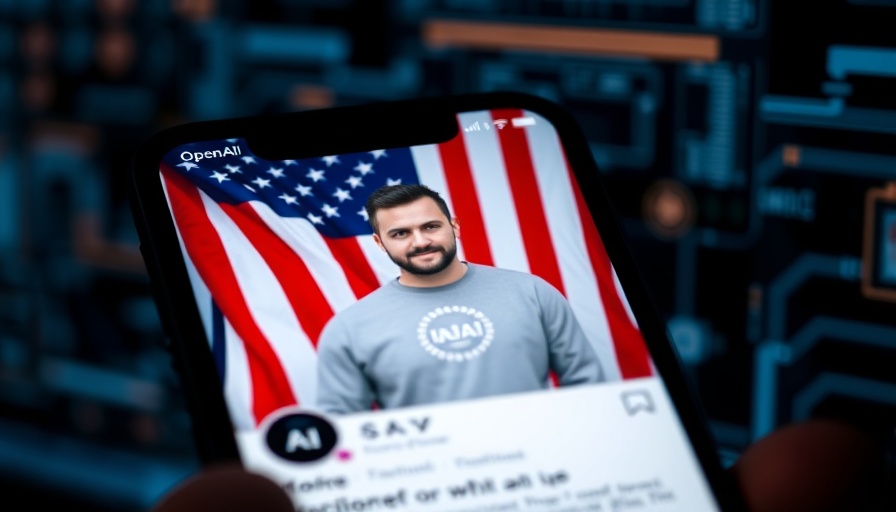
The Legal Battle Between Musk and OpenAI: What's at Stake?
The anticipated trial between Elon Musk and OpenAI is set to commence this December, focusing on the controversial shift from a nonprofit to a for-profit model that Musk claims violates OpenAI's original mission. Founded in 2015 by Musk and CEO Sam Altman to prioritize AI development for the public good, OpenAI's recent strategic change has sparked a fierce legal battle. Musk, having co-founded OpenAI, contends that the company has strayed from its founding principles. With this trial drawing closer, the implications extend beyond just Musk and OpenAI, potentially reshaping the landscape of artificial intelligence and how these technologies are governed.
Understanding the Shift: Why Go For-Profit?
OpenAI argues that the transition to a for-profit model is essential for raising the necessary capital to remain competitive in the rapidly evolving AI industry. In a bid to scale its innovations, OpenAI has sought substantial funding—with a reported $6.6 billion already raised and an additional $40 billion planned—which hinges on how it is structured legally. This shift is not merely about profits; it’s about enabling further research and development to compete against other giants in the field. Without these funds, OpenAI asserts that it risks falling behind competitors, prompting its controversial decision to drop the nonprofit facade.
The Competitive Landscape: Impact of Musk's Lawsuit
Musk's lawsuit raises critical questions about the nature of competition in AI. With his newly founded competitor, xAI, he claims that OpenAI's shift is not simply a funding strategy but a misguided move that could endanger the future of AI development focused on public benefit. This legal conflict highlights the tension between innovation driven by profit motives and the ethical considerations of developing powerful technologies responsibly. The outcomes of this trial could set precedents for how AI companies operate and who ultimately benefits from advancements in technology.
Public Interest vs. Profit: Diverse Perspectives on the Trial
This legal battle also prompts diverse perspectives on profit-driven AI. Advocates argue that capital influx is vital for rapid technological advancements, while critics express concerns that prioritizing profit over altruism may lead to unsafe or biased technologies. Experts note that while OpenAI aims to secure funding, Musk's stance—highlighting ethical AI development—forces the conversation back to the foundational goals of the industry. Public trust hinges on ensuring that these advanced technologies align with societal values rather than just corporate interests.
Future Implications: What Lies Ahead?
As December approaches, many are left pondering the potential outcomes and their broader implications. Should Musk prevail, it may usher in stricter regulations governing AI operations, emphasizing the importance of ethical considerations over financial incentives. Conversely, if OpenAI wins, it risks creating a precedent for profit-centric AI development, potentially sidelining the ethical discussions that Musk advocates for. The ripple effect could influence not just OpenAI and Musk but also how investors and innovators approach AI in the future.
Conclusion: Engaging with AI's Future
The upcoming trial is more than a simple lawsuit; it represents a crucial moment in the evolution of AI. As these powerful technologies continue to shape our lives, understanding the outcomes of such legal disputes is vital. For those keen on the future of AI, keeping abreast of this trial will provide insights into how artificial intelligence will be developed, governed, and implemented. As this legal drama unfolds, it is an opportunity for us all to engage in conversations about technological ethics and innovation.
 Add Row
Add Row  Add
Add 




 Add Row
Add Row  Add
Add 

Write A Comment